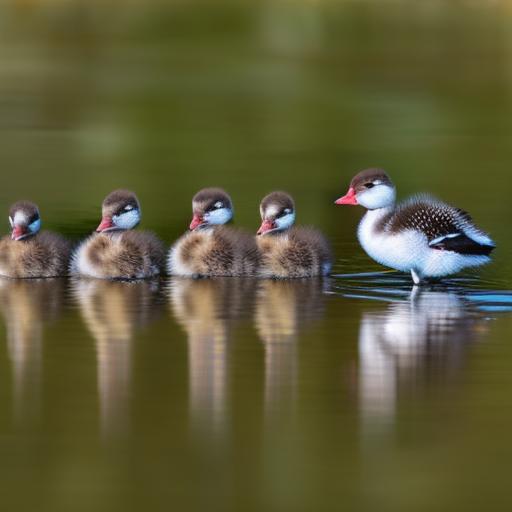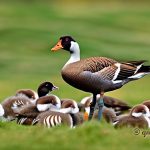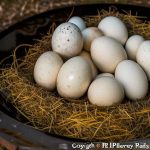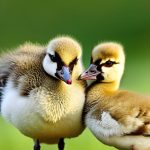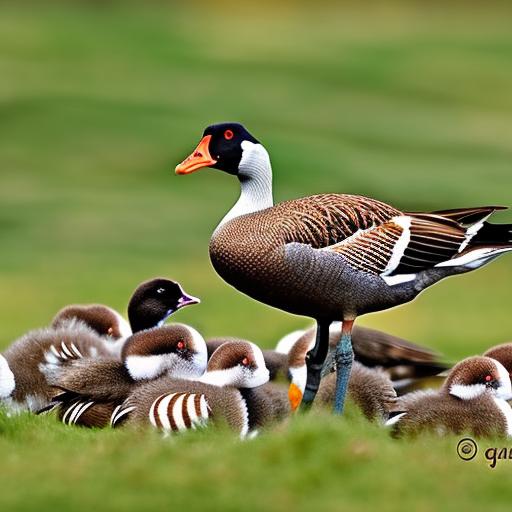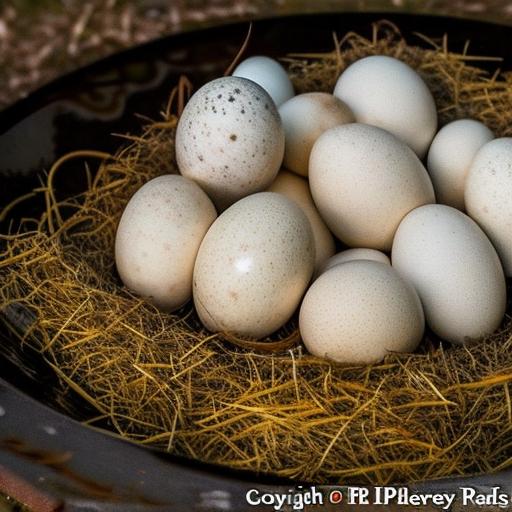Baby geese, also known as goslings, come in a variety of breeds, each with its own unique characteristics and traits. Understanding the different types of baby geese breeds is important for anyone interested in raising these adorable creatures. Whether you are considering backyard farming or commercial farming, knowing the different breeds will help you make informed decisions about which ones are best suited for your needs.
Key Takeaways
- There are many different breeds of baby geese, each with their own unique characteristics and uses.
- Popular breeds for domestication include the Embden, Toulouse, and Chinese breeds.
- For commercial farming, the Pekin and White Chinese breeds are commonly used.
- Baby geese breeds vary in size, color, and temperament, but all require proper care and attention.
- Proper diet, nutrition, and health care are essential for raising healthy and happy baby geese.
Understanding the Different Types of Baby Geese Breeds
There are several different baby geese breeds, each with its own distinct features. Some of the most popular breeds include the Embden, Toulouse, and Chinese breeds.
The Embden breed is known for its large size and white feathers. They are calm and friendly birds, making them a popular choice for backyard farming. The Toulouse breed is slightly smaller than the Embden and has gray feathers. They are known for their docile nature and are often used for meat production. The Chinese breed is smaller in size and has a unique appearance with a knob on its head. They are active and alert birds, making them suitable for both meat and egg production.
Popular Baby Geese Breeds for Domestication
When it comes to domestication, there are a few baby geese breeds that are particularly well-suited for backyard farming. These breeds include the Embden, Toulouse, and Sebastopol.
The Embden breed is one of the most popular choices for domestication due to its calm and friendly nature. They are easy to handle and make great pets. The Toulouse breed is also a good option for backyard farming as they are docile and easy to care for. The Sebastopol breed is known for its unique appearance with curly feathers. They are friendly birds that can be easily tamed.
Baby Geese Breeds for Commercial Farming
For those interested in commercial farming, there are specific baby geese breeds that are commonly used. These breeds include the Pekin, Emden, and African.
The Pekin breed is one of the most popular choices for commercial farming due to its fast growth rate and high meat production. They are also known for their calm temperament, making them easy to handle. The Emden breed is another common choice for commercial farming as they are large birds with good meat production. The African breed is known for its high egg production, making it a popular choice for commercial egg farming.
Characteristics of Baby Geese Breeds
While each baby geese breed has its own unique characteristics, there are some common traits among them. Baby geese are social animals that thrive in groups. They are also highly intelligent and can form strong bonds with their owners.
In terms of temperament, baby geese can vary greatly. Some breeds, like the Embden and Toulouse, are known for their calm and friendly nature, while others, like the Chinese breed, are more active and alert. It is important to consider the temperament of the breed when choosing which ones to raise.
Physical Appearance and Features of Baby Geese Breeds

Baby geese breeds differ in their physical appearance, size, color, and feather patterns. The Embden breed is one of the largest breeds, with white feathers and a sturdy build. The Toulouse breed is slightly smaller with gray feathers and a plump body. The Chinese breed is smaller in size with a knob on its head and a unique appearance.
Feather patterns can also vary among baby geese breeds. The Sebastopol breed has curly feathers that give it a distinct appearance, while other breeds have smooth feathers.
Behavioral Patterns of Baby Geese Breeds
Baby geese breeds have different behavioral patterns and social behaviors. Some breeds, like the Embden and Toulouse, are known for their calm and docile nature. They are friendly birds that can be easily handled and make great pets. Other breeds, like the Chinese breed, are more active and alert. They are known for their curiosity and can be more independent.
In terms of communication, baby geese use a variety of vocalizations to communicate with each other and their owners. They can honk, hiss, and make other sounds to express their needs and emotions.
Breeding and Rearing Baby Geese Breeds
Breeding and rearing baby geese breeds require specific techniques depending on the breed. It is important to provide a suitable environment for breeding, including a nesting area and proper nutrition.
Different breeds may have different breeding seasons and requirements. Some breeds may require more space or specific nesting materials. It is important to research the specific needs of the breed you are interested in breeding to ensure successful reproduction.
Diet and Nutrition for Baby Geese Breeds
Baby geese breeds have specific dietary needs that must be met for proper growth and development. A balanced diet is essential for their health and well-being.
Baby geese should be fed a diet that consists of a mix of grains, greens, and protein sources. They should also have access to fresh water at all times. It is important to provide a varied diet to ensure they receive all the necessary nutrients.
Health and Care for Baby Geese Breeds
Like any animal, baby geese breeds can experience health issues if not properly cared for. Common health issues among baby geese include respiratory infections, parasites, and foot problems.
Proper care and maintenance are essential for keeping baby geese healthy. This includes providing a clean living environment, regular veterinary check-ups, and a balanced diet. Regular exercise and social interaction are also important for their overall well-being.
In conclusion, understanding the different types of baby geese breeds is important for anyone interested in raising these adorable creatures. Whether you are considering backyard farming or commercial farming, knowing the different breeds will help you make informed decisions about which ones are best suited for your needs. Each breed has its own unique characteristics and traits, so it is important to research and choose the breed that aligns with your goals and preferences. With proper care and attention, baby geese can thrive and bring joy to their owners.
If you’re interested in learning more about baby geese breeds, you might also find this article on poultrywizard.com fascinating. It provides valuable information on how to convert a shed into a chicken coop, which can be useful for those looking to raise geese as well. Understanding the different housing options and requirements for poultry can greatly contribute to the successful breeding and rearing of baby geese. Check out the article here: https://poultrywizard.com/keeping-chickens/convert-shed-to-chicken-coop/.
FAQs
What are baby geese breeds?
Baby geese breeds refer to the different types of geese that are bred for their meat, eggs, feathers, or as pets. There are several breeds of geese, each with unique characteristics and purposes.
What are some common baby geese breeds?
Some common baby geese breeds include the Embden, Toulouse, African, Chinese, and Canada geese. Each breed has its own distinct physical features, temperament, and uses.
What is the difference between domestic and wild baby geese breeds?
Domestic baby geese breeds are those that have been selectively bred by humans for specific purposes, such as meat or egg production. Wild baby geese breeds, on the other hand, are those that live in their natural habitats and have not been domesticated.
What are some uses of baby geese breeds?
Baby geese breeds are used for various purposes, including meat production, egg production, feather production, and as pets. Some breeds are also used for weed control and as guard animals.
What should I consider before getting a baby goose as a pet?
Before getting a baby goose as a pet, you should consider the space you have available, as geese require a lot of room to roam. You should also consider their diet, which consists of grass, grains, and water. Additionally, geese can be noisy and messy, so you should be prepared for these aspects of their behavior.
Meet Walter, the feathered-friend fanatic of Florida! Nestled in the sunshine state, Walter struts through life with his feathered companions, clucking his way to happiness. With a coop that’s fancier than a five-star hotel, he’s the Don Juan of the chicken world. When he’s not teaching his hens to do the cha-cha, you’ll find him in a heated debate with his prized rooster, Sir Clucks-a-Lot. Walter’s poultry passion is no yolk; he’s the sunny-side-up guy you never knew you needed in your flock of friends!

